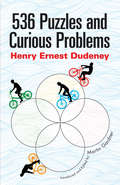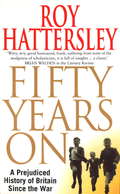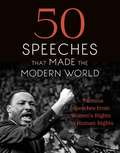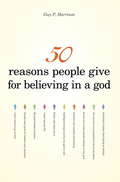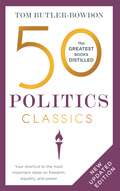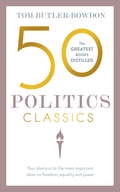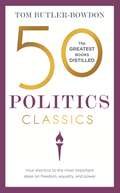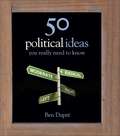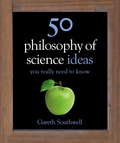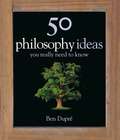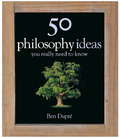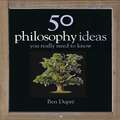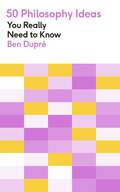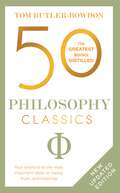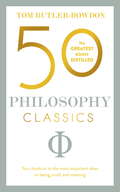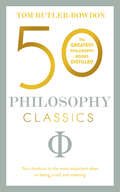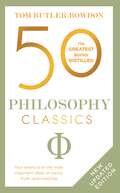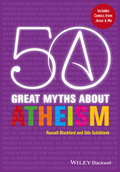- Table View
- List View
536 Puzzles and Curious Problems
by Martin Gardner Henry E. DudeneyFor two decades, self-taught mathematician Henry E. Dudeney wrote a puzzle page, "Perplexities," for The Strand Magazine. Martin Gardner, longtime editor of Scientific American's mathematical games column, hailed Dudeney as "England's greatest maker of puzzles," unsurpassed in the quantity and quality of his inventions. This compilation of Dudeney's long-inaccessible challenges attests to the puzzle-maker's gift for creating witty and compelling conundrums. This treasury of intriguing puzzles begins with a selection of arithmetical and algebraical problems, including challenges involving money, time, speed, and distance. Geometrical problems follow, along with combinatorial and topological problems that feature magic squares and stars, route and network puzzles, and map coloring puzzles. The collection concludes with a series of game, domino, match, and unclassified puzzles. Solutions for all 536 problems are included, and charming drawings enliven the book.
501 Practical Ways to Teach Your Children Values
by Bobbie ReedHow to teach your children values from a Biblical perspective
50 Years On: A Prejudiced History of Britain Since the War
by Roy HattersleyIn FIFTY YEARS ON, Roy Hattersley explores and explains the events which have shaped modern Britain. Combining acute analysis of domestic politics with a brilliant eye for the bigger picture, his 'prejudiced history' takes the reader from the high hopes of 1945 to the cynicism of end-of century Britain. Roy Hattersley focuses his attention on two particular features of post-war Britain: the perpetuation of an education system which fails to meet the needs of the whole country, and our stubborn refusal to accept that the United Kingdom is a medium-sized European nation which can only increase its power and prosperity by real integration within the European union. FIFTY YEARS ON is essential reading for anyone seeking to understand the forces that have shaped us.
50 Years On: A Prejudiced History of Britain Since the War
by Roy HattersleyIn FIFTY YEARS ON, Roy Hattersley explores and explains the events which have shaped modern Britain. Combining acute analysis of domestic politics with a brilliant eye for the bigger picture, his 'prejudiced history' takes the reader from the high hopes of 1945 to the cynicism of end-of century Britain. Roy Hattersley focuses his attention on two particular features of post-war Britain: the perpetuation of an education system which fails to meet the needs of the whole country, and our stubborn refusal to accept that the United Kingdom is a medium-sized European nation which can only increase its power and prosperity by real integration within the European union. FIFTY YEARS ON is essential reading for anyone seeking to understand the forces that have shaped us.
50 Things You're Not Supposed to Know: Religion (50 Things You're Not Supposed to Know)
by Daniele BolelliThis compendium of obscure facts about the world’s religions highlights the political, cultural, and philosophical aspects of the history of religion.If you’re waiting for the world’s “Holy Men” to tell you the truth about their religions, do you suppose they’ll mention that:The Tao Te Ching was only created because Lao Tzu was thrown in jail by a disciple who didn’t want to let him leave town without writing down his teachings?“Passover” celebrates God killing all firstborn Egyptian kids while Jewish homes were “passed over” by the angel of death?Shinto, a natureloving, mellow religion, was transformed by the Japanese government into a nationalistic ideology promoting “holy” war?Adding to its popular “50 Things You’re Not Supposed To Know” series, Disinformation has teamed with Daniele Bolelli—writer, professor of comparative religion, and renowned martial arts practitioner and philosopher—to tackle an ever more serious and important topic: popular misconceptions about religion. Among other revelations:Carpocrates, an early Christian, argued that sex orgies were a key to heaven.Prostitution was a religious duty in Mesopotamian temples.The two major Chinese religions (Taoism and Confucianism) are completely at odds with each other and yet are often practiced together.Despite having persecuted Jews for two thousand years, Christian fundamentalists are Israel’s biggest supporters.Capturing just the right balance of in-depth knowledge, respect, humor, and irreverence, Bolelli takes an ecumenical approach to the task, revealing surprising, shocking, and little-known facts about the “big three” religions but also many more, including Zen Buddhism, Hinduism, Zoroastrianism, and, of course, the increasingly popular nonreligion: atheism.
50 Speeches that Made the Modern World
by ChambersThroughout history, great speeches have produced great change. From inciting violence and asserting control to restoring peace and securing freedom, nothing has the raw emotional power of a speech delivered at the right moment, in the right place, with the right content, and the right delivery. 50 Speeches That Made The Modern World is a celebration of the most influential and thought-provoking speeches that have shaped the world we live in. With comprehensive, chronological coverage of speeches from the 20th and 21st centuries, taken from all corners of the globe, it covers Emmeline Pankhurst's patiently reasoned condemnation of men's failure to improve ordinary women's lives in 1908 through speeches by Vladimir Lenin, Mahatma Gandhi, David Ben-Gurion, Albert Einstein, Fidel Castro, Nikita Khrushchev, Ernesto 'Che' Guevara, Martin Luther King, Malcolm X, Nelson Mandela, Benazir Bhutto, Osama Bin Laden and Aung San Suu Kyi, right up to the most compelling oratory surrounding the 2016 US Presidential elections.Through the rallying propaganda speeches during World War II to the cautious rhetoric of the Cold War period, through challenging the status quo on issues of race, gender and politics to public addresses to the masses on the issues of AIDS and terrorism, through apologies, complaints, warmongering, scaremongering and passionate pleas, this book delivers the most important speeches of the modern era and why they still remain so significant.Each speech has an introduction explaining its setting, importance and impact as well as marginal notes filling in any background information.
50 Reasons People Give for Believing in a God
by Guy P. HarrisonMany books that challenge religious belief from a skeptical point of view take a combative tone that is almost guaranteed to alienate believers or they present complex philosophical or scientific arguments that fail to reach the average reader. This is undoubtably an ineffective way of encouraging people to develop critical thinking about religion. This unique approach to skepticism presents fifty commonly heard reasons people often give for believing in a God and then raises legitimate questions regarding these reasons, showing in each case that there is much room for doubt. Whether you're a believer, a complete skeptic, or somewhere in between, you'll find this review of traditional and more recent arguments for the existence of God refreshing, approachable, and enlightening.From religion as the foundation of morality to the authority of sacred books, the compelling religious testimony of influential people, near-death experiences, arguments from Intelligent Design, and much more, Harrison respectfully describes each rationale for belief and then politely shows the deficiencies that any good skeptic would point out. As a journalist who has traveled widely and interviewed many highly accomplished people, quite a number of whom are believers, the author appreciates the variety of belief and the ways in which people seek to make religion compatible with scientific thought. Nonetheless, he shows that, despite the prevalence of belief in God or religious belief in intelligent people, in the end there are no unassailable reasons for believing in a God.For skeptics looking for appealing ways to approach their believing friends or believers who are not afraid to consider a skeptical challenge, this book makes for very stimulating reading. From the Trade Paperback edition.
50 Politics Classics: Your shortcut to the most important ideas on freedom, equality, and power
by Tom Butler BowdonWhat if you didn't have to read the 50 most important books on Politics to know the most important ideas?This is the thinking person's guide to the big political texts from across the centuries, from the original pioneers to the contemporary. With insightful commentary for each of the 50 books, key quotes and biographical information on the authors and a guide to further reading, 50 Politics Classics gives a unique overview of the political writings that shaped history and are still shaping minds today. From Abraham Lincoln to Nelson Mandela, and from Aristotle to George Orwell, 50 Politics Classics distils the essence of the books, pamphlets, and speeches of the major leaders and great thinkers that drive real-world change. Spanning 2,500 years, left and right, thinkers and doers, Tom Butler-Bowdon covers activists, war strategists, visionary leaders, economists, philosophers of freedom, feminists, conservatives and environmentalists, right up to contemporary leaders and thought leaders such as Barack Obama, Isobel Wilkerson and Michael Pillsbury. Whether you consider yourself to be conservative, liberal, socialist, or Marxist, this book gives you greater understanding of the key ideas that matter in our politically charged times.The revised edition will:· include 5-6 new contemporary classics from White Fragility to Why Nations Fail and leaders and thought leaders such as Barack Obama, Isobel Wilkerson and Michael Pillsbury.· have a revised introduction to reflect on the seismic political movements that have blown up since the last edition· have some of the less relevant titles removed
50 Politics Classics: Your shortcut to the most important ideas on freedom, equality, and power (50 Classics Ser.)
by Tom Butler Butler BowdonWhether you consider yourself to be conservative, liberal, socialist, or Marxist, 50 Politics Classics gives you greater understanding of the key ideas that matter in our politically charged times.From Abraham Lincoln to Nelson Mandela, from Mary Wollstonecraft to George Orwell, 50 Politics Classics distills the essence of the books, pamphlets, and speeches of the major leaders and great thinkers that drive real-world change. Spanning 2,500 years, left and right, thinkers and doers, Tom Butler-Bowdon's new book covers activists, war strategists, visionary leaders, economists, philosophers of freedom, feminists, conservatives and environmentalists, from ancient philosophical texts right up to contemporary classics such as The Spirit Level and No Logo.
50 Politics Classics: Freedom Equality Power
by Tom Butler-BowdonFeaturing texts by Saul Alinsky, Edmund Burke, Rachel Carson, Carl von Clausewitz, Francis Fukuyama, Mahatma Gandhi, Friedrich Hayek, Thomas Hobbes, Martin Luther King, Niccolo Machiavelli, Karl Marx, J. S. Mill, George Orwell, Thomas Paine, Plato, Jean-Jacques Rousseau, Alexis De Tocqueville, Mary Wollstonecraft, and many more. 50 Politics Classics provides commentaries on the books, pamphlets, and speeches of major leaders, from Abraham Lincoln to Winston Churchill, and the texts from Aristotle to Naomi Klein, that drive real-world change.Tom Butler-Bowdon's book spans 2,500 years of thinkers and doers, economists, activists, war strategists, visionary leaders, and philosophers of freedom. Are we living in The Post-American World? Is there a Clash of Civilizations? What is The Future of Power? Whether you consider yourself to be conservative, liberal, socialist, or Marxist, in these politically charged times we could all benefit from greater understanding of these key ideas.This is the latest bestseller in Tom Butler-Bowdon's award-winning 50 Classics series, which has already sold one hundred thousand copies in the United States and four hundred thousand copies worldwide. Tom Butler-Bowdon is an expert on the "literature of possibility," covering psychology, philosophy, self-help, spirituality, and prosperity. His first book, 50 Self-Help Classics, won the Benjamin Franklin Award and was a Foreword magazine Book of the Year. A graduate of the London School of Economics and the University of Sydney, Tom lives in Oxford, United Kingdom, and Australia. Visit: butler-bowdon.com.
50 Politics Classics: Freedom, Equality, Power
by Tom Butler-BowdonFrom Abraham Lincoln to Nelson Mandela, and from Aristotle to George Orwell, 50 POLITICS CLASSICS distills the essence of the books, pamphlets, and speeches of the major leaders and great thinkers that drive real-world change. Spanning 2,500 years, left and right, thinkers and doers, Tom Butler-Bowdon s new book covers activists, war strategists, visionary leaders, economists, philosophers of freedom, feminists, conservatives and environmentalists, right up to contemporary classics such as The Spirit Level and No Logo. Whether you consider yourself to be conservative, liberal, socialist, or Marxist, this book gives you greater understanding of the key ideas that matter in our politically charged times.
50 Political Ideas You Really Need to Know
by Ben DupreAt a time of corrosive popular cynicism and profound international unease, the need for clarity over the fundamental concepts of politics has never been greater: the forces of Terrorism and Fundamentalism endanger our Security, while government responses to it pose a basic threat to Liberty, Democracy and Human rights. Corruption, Spin and a suspect Political culture arouse public indignation, which is further aggravated by an array of Pressure groups and the far-from-disinterested attentions of the Mass media. In 50 Political Ideas You Really Need to Know, Ben Dupre clears away the murk that obscures key concepts that we ignore at our peril.
50 Philosophy of Science Ideas You Really Need to Know (50 Ideas You Really Need to Know series)
by Gareth SouthwellScience first began as a branch of philosophy, but it has since grown up and moved out of the family home, and its successes have put its parent in the shade. Thanks to scientific knowledge we have walked on the Moon, cured once-fatal illnesses, and even identified the very building blocks of life and the universe. But it is these very successes that underline the need for philosophy. How much should we trust the pronouncements of scientists that we read in the media? What are the ethical implications of our delving into the foundations of our DNA, reproductive treatments, or artificially prolonging life? And are there limits to what science can tell us about the world we think we know? In straightforward and accessible terms, 50 Philosophy of Science Ideas You Really Need to Know explains the key philosophical questions that continue to lie at the heart of the nature and practice of science today. The ideas explored include: Appearance and reality; Knowledge; Anti-realism; Metaphysics; Science and gender; Phenomenology and science.
50 Philosophy of Science Ideas You Really Need to Know (50 Ideas You Really Need To Know Ser.)
by Gareth SouthwellScience first began as a branch of philosophy, but it has since grown up and moved out of the family home, and its successes have put its parent in the shade. Thanks to scientific knowledge we have walked on the Moon, cured once-fatal illnesses, and even identified the very building blocks of life and the universe. But it is these very successes that underline the need for philosophy. How much should we trust the pronouncements of scientists that we read in the media? What are the ethical implications of our delving into the foundations of our DNA, reproductive treatments, or artificially prolonging life? And are there limits to what science can tell us about the world we think we know? In straightforward and accessible terms, 50 Philosophy of Science Ideas You Really Need to Know explains the key philosophical questions that continue to lie at the heart of the nature and practice of science today. The ideas explored include: Appearance and reality; Knowledge; Anti-realism; Metaphysics; Science and gender; Phenomenology and science.
50 Philosophy Ideas You Really Need to Know
by Ben DupreHave you ever laid awake at night fretting over how we can be sure of the reality of the external world? Perhaps we are in fact disembodied brains, floating in vats at the whim of some deranged puppet-master? If so, you are not alone--and what's more, you are in exalted company. For this question and other ones like it have been the stuff of philosophical rumination from Plato to Popper.In a series of accessible and engagingly written essays, 50 Philosophy Ideas You Really Need to Know introduces and explains the problems of knowledge, consciousness, identity, ethics, belief, justice and aesthetics that have engaged the attention of thinkers from the era of the ancient Greeks to the present day.
50 Philosophy Ideas You Really Need to Know
by Ben DupreHave you ever lain awake at night fretting over how we can be sure of the reality of the external world? Perhaps we are in fact disembodied brains, floating in vats at the whim of some deranged puppet-master? If so, you are not alone - and what's more, you are in exalted company. For this question and others like it have been the stuff of philosophical rumination for centuries, from Plato to Popper. In a series of accessible and engaging essays, 50 Philosophy Ideas You Really Need to Know introduces and explains the problems of knowledge, consciousness, identity, ethics, belief, justice and aesthetics that have troubled the minds of great thinkers for centuries, from the ancient Greeks to the present day. Contents include: The brain in a vat, Plato's cave, Cogito ergo sum, The mind-body problem, The boo/hurrah theory, Ends and means, The categorical imperative, Acts and omissions, The rights of animals, The gambler's fallacy, Paradigm shifts, Occam's razor, Positive and negative freedom, Theories of punishment and Just war.
50 Philosophy Ideas You Really Need to Know (50 Ideas You Really Need to Know series)
by Ben DupreHave you ever lain awake at night fretting over how we can be sure of the reality of the external world? Perhaps we are in fact disembodied brains, floating in vats at the whim of some deranged puppet-master? If so, you are not alone - and what's more, you are in exalted company. For this question and others like it have been the stuff of philosophical rumination for centuries, from Plato to Popper. In a series of accessible and engaging essays, 50 Philosophy Ideas You Really Need to Know introduces and explains the problems of knowledge, consciousness, identity, ethics, belief, justice and aesthetics that have troubled the minds of great thinkers for centuries, from the ancient Greeks to the present day. Contents include: The brain in a vat, Plato's cave, Cogito ergo sum, The mind-body problem, The boo/hurrah theory, Ends and means, The categorical imperative, Acts and omissions, The rights of animals, The gambler's fallacy, Paradigm shifts, Occam's razor, Positive and negative freedom, Theories of punishment and Just war.
50 Philosophy Ideas You Really Need to Know (50 Ideas You Really Need to Know series)
by Ben DupreHave you ever lain awake at night fretting over how we can be sure of the reality of the external world? Perhaps we are in fact disembodied brains, floating in vats at the whim of some deranged puppet-master? If so, you are not alone - and what's more, you are in exalted company. For this question and other ones like it have been the stuff of philosophical rumination from Plato to Popper.In a series of accessible and engagingly written essays, 50 Philosophy Ideas You Really Need to Know introduces and explains the problems of knowledge, consciousness, identity, ethics, belief, justice and aesthetics that have engaged the attention of thinkers from the era of the ancient Greeks to the present day.(P)2008 Quercus Editions Ltd
50 Philosophy Ideas You Really Need to Know (50 Ideas You Really Need to Know series)
by Ben DupreIn a series of 50 accessible essays, Ben Dupré introduces and explains the philosophical questions around knowledge, consciousness, identity, ethics and justice that have engaged the minds of thinkers from the Ancient Greeks to the present day. From Plato's cave to virtue ethics, theories of punishment to animal rights, 50 Philosophy Ideas You Really Need to Know is a complete introduction to the most important philosophical concepts in history.
50 Philosophy Classics: Thinking, Being, Acting Seeing - Profound Insights and Powerful Thinking from Fifty Key Books
by Tom Butler BowdonFor over 2000 years, philosophy has been our best guide to the experience of being human, and the true nature of reality. From Aristotle, Plato, Epicurus, Confucius, Cicero and Heraclitus in ancient times to 17th century rationalists Descartes, Leibniz and Spinoza, from 20th-century greats Jean-Paul Sartre, Jean Baudrillard and Simone de Beauvoir to contemporary thinkers Michael Sandel, Peter Singer and Slavoj Zizek, 50 Philosophy Classics explores key writings that have shaped the discipline and had an impact on the real world. This is the thinking person's guide to a uniquely powerful tool for opening our minds and helping us view the world. It synthesises the 50 greatest books ever written, distilling hundreds of ideas from across the centuries with insightful commentary, key quotes and biographical information on the authors.The revised edition will:· include 7 new contemporary or timely classics such as Judith Butler's Gender Trouble, Michael Sandel's The Tyranny of Merit, Isaiah Berlin's The Hedgehog and the Fox and Mary Midgely's Myths We Live By.· include a reader code to access a free pack of downloadable bonus material· have a revised introduction to reflect on the current relevance of philosophy today with topical themes to have emerged in the 9 years since the last edition was written.· have some of the less relevant titles removed "50 Philosophy Classics is an impressively wide-ranging compendium of nutshell clarity. It strikes just the right balance between contextual analysis, and breezy illustrative anecdote." Dr Phil Oliver, Department of Philosophy, Middle Tennessee State University, USA
50 Philosophy Classics: Thinking, Being, Acting Seeing - Profound Insights and Powerful Thinking from Fifty Key Books
by Tom Butler Butler BowdonFor over 2000 years, philosophy has been our best guide to the experience of being human, and the true nature of reality. From Aristotle, Plato, Epicurus, Confucius, Cicero and Heraclitus in ancient times to 17th century rationalists Descartes, Leibniz and Spinoza, from 20th-century greats Jean-Paul Sartre, Jean Baudrillard and Simone de Beauvoir to contemporary thinkers Michael Sandel, Peter Singer and Slavoj Zizek, 50 Philosophy Classics explores key writings that have shaped the discipline and had an impact on the real world. Philosophy can no longer be confined to academia, and 50 Philosophy Classics shows how powerful it can be as a tool for opening our minds and helping us think. Whether you are fascinated or daunted by the big questions of how to think, how to be, how to act and how to see, this is the perfect introduction to some of humanity's greatest minds and their landmark books.
50 Philosophy Classics: Thinking, Being, Acting Seeing - Profound Insights and Powerful Thinking from Fifty Key Books
by Tom Butler-BowdonFor over 2000 years, philosophy has been our best guide to the experience of being human, and the true nature of reality. From Aristotle, Plato, Epicurus, Confucius, Cicero and Heraclitus in ancient times to 17th century rationalists Descartes, Leibniz and Spinoza, from 20th-century greats Jean-Paul Sartre, Jean Baudrillard and Simone de Beauvoir to contemporary thinkers Michael Sandel, Peter Singer and Slavoj Zizek, 50 PHILOSOPHY CLASSICS explores key writings that have shaped the discipline and had an impact on the real world. Philosophy can no longer be confined to academia, and 50 Philosophy Classics shows how powerful it can be as a tool for opening our minds and helping us think. Whether you are fascinated or daunted by the big questions of how to think, how to be, how to act and how to see, this is the perfect introduction to some of humanity's greatest minds and their landmark books.
50 Philosophy Classics: Revised Edition, Thinking, Being, Acting Seeing - Profound Insights and Powerful Thinking from Fifty Key Books
by Tom Butler-BowdonFor over 2000 years, philosophy has been our best guide to the experience of being human, and the true nature of reality.From Aristotle, Plato, Epicurus, Confucius, Cicero and Heraclitus in ancient times to 17th century rationalists Descartes, Leibniz and Spinoza, from 20th-century greats Jean-Paul Sartre, Jean Baudrillard and Simone de Beauvoir to contemporary thinkers Michael Sandel, Peter Singer and Slavoj Zizek,50 Philosophy Classics explores key writings that have shaped the discipline and had an impact on the real world.This is the thinking person's guide to a uniquely powerful tool for opening our minds and helping us view the world. It synthesises the 50 greatest books ever written, distilling hundreds of ideas from across the centuries with insightful commentary, key quotes and biographical information on the authors.The revised edition will:· include 7 new contemporary or timely classics such as Judith Butler's Gender Trouble, Michael Sandel's The Tyranny of Merit, Isaiah Berlin's The Hedgehog and the Fox and Mary Midgely's Myths We Live By.· include a reader code to access a free pack of downloadable bonus material· have a revised introduction to reflect on the current relevance of philosophy today with topical themes to have emerged in the 9 years since the last edition was written.· have some of the less relevant titles removed"50 Philosophy Classics is an impressively wide-ranging compendium of nutshell clarity. It strikes just the right balance between contextual analysis, and breezy illustrative anecdote."Dr Phil Oliver, Department of Philosophy, Middle Tennessee State University, USA
50 Philosophy Classics
by Tom Butler-BowdonA stunning survey of the "king of disciplines," 50 Philosophy Classics seeks to enlighten and explain, rather than merely instruct. Tom Butler-Bowdon has compiled a remarkable group of thinkers and their seminal works to serve as a lively entry point to the field of philosophy. Analyses of ancient and modern philosophers show how philosophy helped shape the events human history.
50 Great Myths About Atheism
by Russell Blackford Udo SchüklenkTackling a host of myths and prejudices commonly leveled at atheism, this captivating volume bursts with sparkling, eloquent arguments on every page. The authors rebut claims that range from atheism being just another religion to the alleged atrocities committed in its name.An accessible yet scholarly commentary on hot-button issues in the debate over religious beliefTeaches critical thinking skills through detailed, rational argumentObjectively considers each myth on its meritsIncludes a history of atheism and its advocates, an appendix detailing atheist organizations, and an extensive bibliographyExplains the differences between atheism and related concepts such as agnosticism and naturalism
